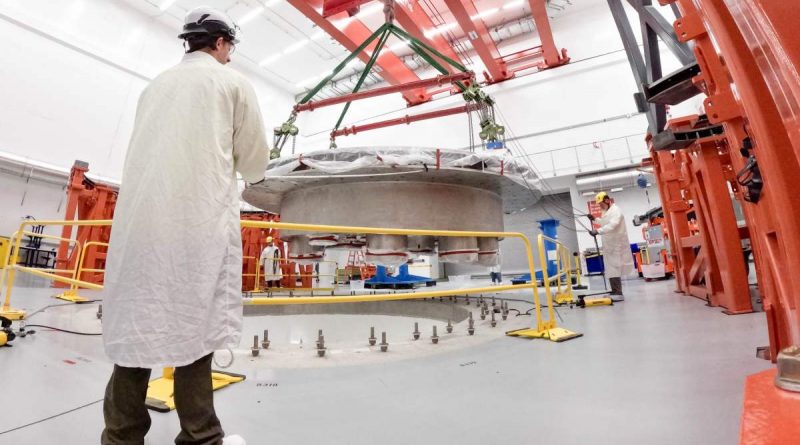Nvidia, Google, and Bill Gates Help Commonwealth Fusion Systems Raise $863 Million in Funding
Commonwealth Fusion Systems, a fusion power startup, has successfully raised $863 million from a notable group of investors, including names like Nvidia, Google, and Breakthrough Energy Ventures.
“We remain committed to advancing fusion technology,” stated Bob Mumgaard, co-founder and CEO, during a recent conference call. “This funding isn’t just about fusion as a concept, but rather about transforming it into a sustainable commercial sector.”
Based in Massachusetts, the company has attracted nearly $3 billion in total funding, solidifying its position as the top-funded fusion startup. In 2021, Commonwealth Fusion Systems (CFS) secured a significant $1.8 billion funding round.
Fusion power is often regarded as an almost limitless energy source, but it has recently gained traction among investors. Advances in computing and AI have propelled research and development, creating a vibrant ecosystem for startups and investors in this field.
In a fusion reaction, atoms undergo compression and heating, leading to the formation of plasma, a unique state of matter. When the plasma reaches the required temperature and pressure, the atoms fuse together, releasing immense amounts of energy.
CFS is working on a prototype reactor named Sparc located in a suburb of Boston. The company expects this device to be operational by next year, with a goal of achieving scientific breakeven by 2027—marking the point at which the fusion reaction produces more energy than what was needed to initiate it.
While Sparc is not intended to feed electricity into the grid, it plays a vital role in CFS’s overall strategy.
Techcrunch event
San Francisco
|
October 27-29, 2025
“There are variables in the modeling and physics that remain unclear,” remarked Saskia Mordijk, an associate physics professor at the College of William and Mary, during a discussion with TechCrunch. “When engaging a brand-new device, there’s uncertainty about whether it will enter plasma regimes we’ve yet to study, potentially leading to surprising discoveries.”
If Sparc runs smoothly, CFS plans to initiate construction of Arc, a commercial-scale power plant in Virginia, around 2027 or 2028.
Both Sparc and Arc are designed as tokamaks, a type of fusion reactor that employs powerful superconducting magnets to confine and compress plasma, a well-established model in fusion research.
“We believe this concept should work,” noted Mordijk. “The pivotal question remains: how will it perform?”
Investor confidence seems strong based on current developments. The Series B2 funding round features an extensive list of participants, with no single investor leading the charge, and many existing investors increasing their contributions, according to Ally Yost, CFS’s senior vice president of corporate development.
Notable investors expanding their stakes include Breakthrough Energy Ventures, Emerson Collective, Eni, Future Ventures, Gates Frontier, Google, Hostplus, Khosla Ventures, Lowercarbon Capital, Safar Partners, Eric Schmidt, Starlight Ventures, and Tiger Global.
New entrants in this funding round include Brevan Howard, Morgan Stanley’s Counterpoint Global, Stanley Druckenmiller, FFA Private Bank in Dubai, Galaxy Interactive, Gigascale Capital, HOF Capital, Neva SGR, Nvidia’s NVentures, Planet First Partners, Woori Venture Partners US, and a consortium of 12 Japanese firms led by Mitsui & Co., Ltd. and Mitsubishi Corporation.
This diverse array of investors could be instrumental as the company seeks to build its supply chain and finds partners to construct its power plants and procure electricity. To date, CFS has secured a contract with Google for 200 megawatts of power from Arc.
As a pioneering project, Arc is expected to incur higher initial costs compared to future plants, according to Mordijk.
While Sparc will validate the scientific concepts, it will also provide CFS with critical insights, Mumgaard explained to TechCrunch. “This is essential, but it also helps us understand the capabilities needed to bring it to fruition. It’s about understanding the associated costs.”
The latest funding round will support CFS’s progress with Sparc, but it won’t be enough to cover the costs of Arc, which is projected to require several billion dollars, according to Mumgaard. The firm is still unclear about the exact funding structure for Arc.
“The fact that it’s a groundbreaking technology introduces complexity that significantly influences the capital sources,” he added. “While we aren’t completely sure, we are deeply committed to this initiative, and our investors share that commitment.”



